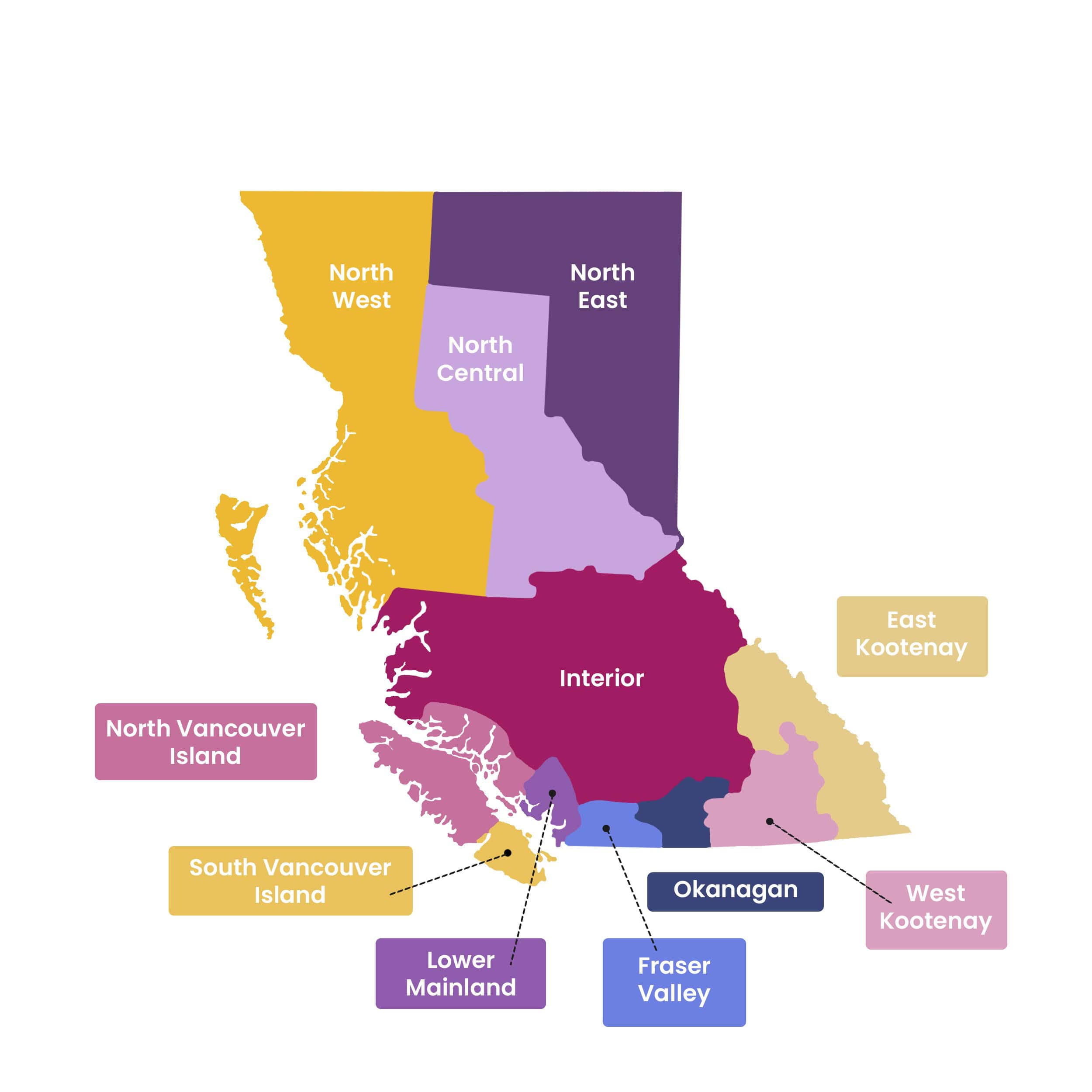
New Intersectional Resources to Prevent Sexualized Violence
- In September, BCcampus launched four new sexualized violence prevention training resources. These resources were created in partnership with the Ministry of Post-Secondary Education and Future Skills as part of the Intersectional Sexualized Violence Project – an initiative funded by Women and Gender Equality.
The project was a truly collaborative effort between a diverse group of many post-secondary system students, staff, faculty, administrators, partners, and subject matter experts across BC, including EVA BC.
These online and in-person resources address technology-facilitated sexualized violence and the impacts of sexualized violence on Indigenous, graduate, and international students:
- Technology Facilitated Sexualized Violence: An Introductory Training for B.C. Post-Secondary Institutions is a self-paced online course that explores:
- Technology-facilitated sexualized violence (TFSV) and its impacts;
- How to address it as a bystander; and
- How to support survivors of TFSV.
- How to support survivors of TFSV.
This resource includes an implementation guide.
- Power Dynamics and Boundaries: A Sexualized Violence Prevention Workshop for Graduate Students includes a facilitator guide and PowerPoint slides to help BC post-secondary institutions offer training on power dynamics and sexualized violence in the graduate student context.
- The Medicine of the Berry Patch: A Guide for B.C. Post-Secondary Institutions to Support Indigenous Students is a call to action and self-paced online resource with videos, readings, and reflection questions for BC post-secondary institutions wanting to build support for First Nations, Métis, and Inuit students and survivors of sexualized violence.
- Communication, Healthy Relationships, and Consent: A Resource for B.C. Post-Secondary Institutions is an interactive, self-paced online resource that provides foundational training in healthy communication and relationships, setting boundaries, and establishing consent.
All of these training resources are free and can be adapted for, accessed and shared by different communities and service providers. Each course has detailed instructions on how to revise the content and credit the course creators.
EVA BC’s contribution to the Intersectional Sexualized Violence Project
Samantha Matute Arrieta, Program Lead of Communications at EVA BC, helped develop Communication, Healthy Relationships, and Consent: A Resource for B.C. Post-Secondary Institutions as one of the curriculum writers on the International Student Resource Development Team.
The Team worked closely with the International Student Resource Working Group and Intersectional Sexualized Violence Advisory Group to create an online resource with a strong focus on reflexivity to honour the diverse knowledge, experiences and strengths of international students. The online modules, available in seven languages, provide a supportive framework for understanding and communicating boundaries.
Samantha shares, “This resource examines how our various cultural contexts influence communication styles and play a role in building and maintaining safe and health relationships where our boundaries are honoured and respected. It also explores the importance of communicating and navigating the complexities and nuances of consent – how our cultural contexts, gendered expectations, lived experience and community influence our understanding of consent and beliefs about sex and consent.”
Get more information on the sexualized violence resources developed at BCcampus.

